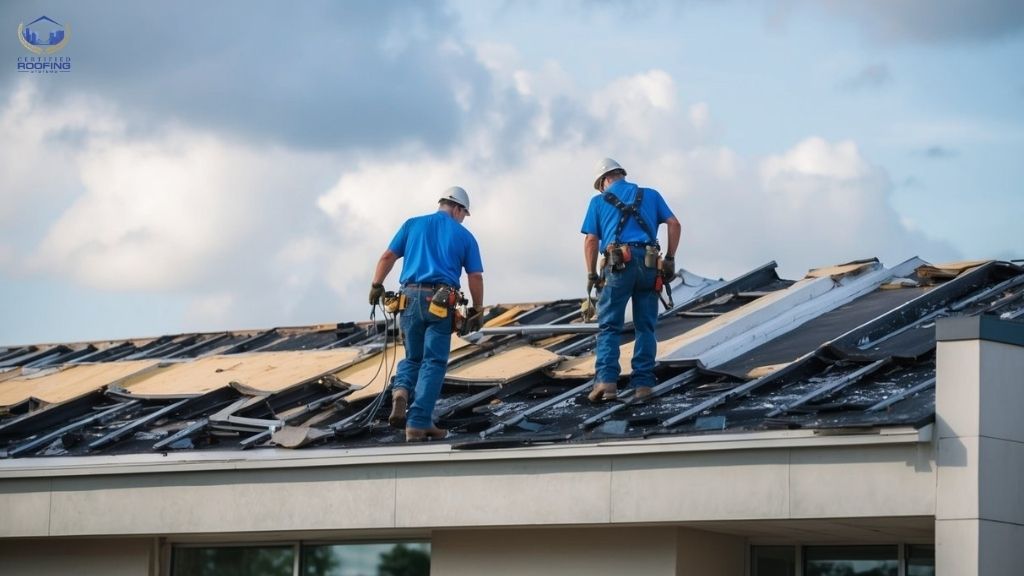Choosing a commercial roof coating contractor for your building is a significant decision that impacts your property’s protection and value. A quality roof coating can extend your roof’s life, improve energy efficiency, and save money on future repairs. The right contractor should have proper licensing, insurance, and extensive experience with your specific type of commercial roofing system.

Finding a trustworthy professional requires careful research and evaluation. Look for contractors who specialize in commercial properties and the specific coating type your building needs. Check their credentials, ask for references from similar projects, and review their portfolio of completed work. A reputable contractor will offer a detailed inspection, provide a comprehensive estimate, and explain the benefits of different coating options for your building.
Table of Contents
ToggleKey Takeaways
- Verify contractor licensing, insurance, and experience with your specific roofing system before making your decision.
- Quality commercial roof coatings improve energy efficiency and extend roof life when properly applied by experienced professionals.
- Regular maintenance of coated roofs maximizes durability and ensures the long-term protection of your investment.
Evaluating Roof Coating Needs

Before selecting a contractor, you need to understand your building’s specific roofing requirements. A thorough evaluation will help you communicate effectively with potential contractors and ensure you receive appropriate solutions.
Assessing Roof Conditions
Start with a comprehensive inspection of your existing roof. Look for visible damage like cracks, blisters, ponding water, or leaks that require immediate attention. Document these issues with photos to share with contractors.
The age of your roof significantly impacts coating decisions. Older roofs might need repairs before coating application. Structural integrity matters too—ensure your roof can support the additional weight of coating materials.
Climate considerations are crucial. Buildings in hot, sunny regions benefit from reflective roof coatings that reduce cooling costs. In areas with heavy rainfall, waterproof elastomeric roof coatings provide better protection.
Check for previous roof maintenance history. Multiple layers of existing coatings may require removal before new applications, increasing project scope and cost.
Understanding Different Coating Options
Silicone coatings offer excellent UV resistance and waterproofing capabilities. They perform well in extreme temperatures and maintain flexibility over time. These coatings are ideal for flat roofs prone to ponding water.
Acrylic coatings provide good reflectivity at lower costs. They’re water-based and environmentally friendly, making them suitable for buildings with sustainability goals. However, they may not perform as well in permanently ponding water situations.
Polyurethane coatings deliver superior durability and impact resistance. They’re excellent for roofs with high foot traffic or mechanical equipment exposure. These coatings come in aromatic (base) and aliphatic (top) layers for comprehensive protection.
Elastomeric roof coatings expand and contract with temperature changes, preventing cracks and maintaining waterproof integrity. They’re particularly effective for metal roofs that experience significant thermal movement.
Compare coating specifications for:
- Dry film thickness requirements
- Application temperature ranges
- Cure times
- Warranty coverage
Selecting a Roof Coating Contractor

Finding the right roofing contractor for your commercial building requires careful evaluation of several key factors. Your choice will impact both the quality and longevity of your roof coating project.
Researching Potential Contractors
Start by creating a list of commercial roofing companies in your area. Look for contractors who specialize in the specific type of roof coating your building needs. Online review platforms, business directories, and industry associations can provide valuable leads.
Ask other business owners for recommendations. First-hand experiences from trusted sources often reveal insights about a contractor’s reliability and work quality.
Check each roofing company’s website for information about their services, experience, and specialization in commercial roof coatings. Most reputable contractors will showcase their previous projects and areas of expertise.
Request quotes from at least three different contractors. Compare not just the price, but also the scope of work, materials proposed, and warranty terms.
Verifying Credentials and Past Work
Ensure the roofing contractor holds proper licensing for your state or municipality. This verification helps protect you from unqualified operators and potential legal issues.
Confirm they carry adequate insurance, including both liability and worker’s compensation coverage. This protects your business from potential liability if accidents occur during the project.
Review their portfolio of completed projects, particularly ones similar to yours. Many contractors can provide before-and-after photos or arrange visits to completed sites.
Contact references from recent jobs. Ask specific questions about:
- Project timeliness
- Budget adherence
- Communication quality
- Problem resolution
- Final result satisfaction
Evaluating Contractor Expertise
Schedule an in-person consultation with your top choices. Professional contractors will conduct a thorough roof inspection to assess your building’s specific needs.
Assess their knowledge about different coating systems and their ability to explain why a particular solution suits your building. Expertise shows in their ability to discuss technical details in understandable terms.
Consider their approach to potential challenges. Experienced contractors will anticipate issues related to weather conditions, building access, or existing roof problems.
Check if they offer routine inspection and maintenance services after project completion. The best roofing companies view their relationship with clients as long-term partnerships.
Review the warranty terms carefully. Quality contractors stand behind their work with comprehensive coverage for both materials and workmanship.
Preparing for Roof Coating Application

Proper preparation is crucial for a successful roof coating project. Before application begins, you need to address timing considerations and necessary repairs to ensure optimal results.
Scheduling Optimal Timing
The timing of your roof coating project significantly impacts its success. Schedule application during dry weather with temperatures between 50-90°F for most coating types. Many contractors recommend spring or fall to avoid extreme temperatures.
Avoid scheduling during rainy seasons as moisture can prevent proper adhesion. In winter, snow accumulation and freezing temperatures make application impossible in many regions.
Consider your building’s operational schedule when planning. Some coatings emit strong odors, which might disrupt business activities. Most commercial roof coating projects take 2-5 days depending on roof size and complexity.
Ask potential contractors about their weather contingency plans. Reputable companies monitor forecasts carefully and adjust schedules to ensure ideal application conditions.
Addressing Roof Repairs
A thorough roof inspection must precede any coating application. Professional contractors will identify and fix structural issues, leaks, and damaged flashing before applying coating.
Unresolved problems can lead to coating failure and more expensive repairs later. Common repair needs include:
- Patching holes and tears in membrane roofing
- Replacing damaged insulation
- Repairing loose or damaged flashing
- Addressing ponding water issues
- Fixing rusted metal components
Waterproofing vulnerable areas like seams, penetrations, and transitions is essential. These high-stress areas often develop problems first and need special attention.
Regular maintenance and routine inspection reports can help identify problems early. Share these reports with your contractor to ensure all known issues are addressed before coating begins.
Maintaining Coated Roofs

A well-maintained commercial roof coating extends your investment’s lifespan and prevents costly repairs. Regular upkeep preserves the coating’s protective and energy-saving properties while ensuring your building remains protected.
Planning for Regular Maintenance
Commercial roof coatings require scheduled maintenance to perform at their best. Create a maintenance calendar based on the manufacturer’s recommendations for your specific coating type. Most silicone and elastomeric coatings need inspection at least twice yearly.
Document all maintenance activities in a detailed log. This record helps track the roof’s condition over time and provides valuable information for future service providers.
Include seasonal considerations in your maintenance plan. For example, reflective roof coatings need cleaning before summer to maximize energy efficiency benefits. Metal roofs with elastomeric coatings may need more frequent checks in areas with extreme temperature fluctuations.
Budget for regular maintenance as a preventive measure. Professional maintenance typically costs less than emergency repairs and coating replacement.
Conducting Periodic Inspections
Inspect your coated roof after severe weather events like hailstorms, heavy rains, or high winds. Look for coating deterioration, cracking, or areas where the coating has worn thin.
Check for ponding water, which can degrade even high-quality coatings over time. Proper drainage is essential for maintaining coating integrity.
Examine seams, flashings, and penetration points where leaks commonly develop. These areas often need touch-ups before the main coating surface shows wear.
Use a checklist during inspections to ensure thoroughness. Include items like coating adhesion, surface contamination, and evidence of water infiltration.
Consider thermal imaging to detect moisture trapped beneath the coating. This technology helps identify problems before they become visible to the naked eye.
Managing Repairs and Upkeep
Address small issues promptly before they escalate into major problems. Touch-up repairs to silicone or elastomeric coatings are relatively simple when caught early.
Clean the roof surface regularly to prevent dirt and debris accumulation. Gentle washing with appropriate cleaners preserves reflective properties and prevents coating deterioration.
Remove leaves, branches, and other debris that could trap moisture against the coating. Standing organic matter creates ideal conditions for mold growth and coating failure.
Reapply coating to high-wear areas as needed. Traffic paths and areas around HVAC equipment often need more frequent maintenance than the main roof surface.
Work with your coating contractor to develop a long-term maintenance strategy. Professional assessment can identify when spot repairs are sufficient and when a complete recoat becomes necessary.
Frequently Asked Questions
Choosing the right commercial roof coating contractor involves careful consideration of multiple factors to ensure quality work and long-term satisfaction. The following questions address the most common concerns business owners have during the selection process.
What are the key factors to consider when selecting a commercial roofing contractor?
When selecting a roofing contractor, prioritize those with proper licensing, insurance, and experience with your specific roof type.
Look for contractors who offer comprehensive services including inspections, repairs, and maintenance plans rather than just installations.
Budget considerations matter, but lowest price rarely means best value. Consider contractors who provide detailed quotes and explain the long-term benefits of their recommended solutions.
How can I evaluate the reputation and experience of a roofing contractor?
Check online reviews on multiple platforms and ask for references from past clients with similar projects.
Request to see examples of completed commercial roofing projects, especially those involving coating applications similar to what your building needs.
Verify how long they’ve been in business specifically handling commercial roof coatings, as this experience differs from general roofing work.
What are the signs of a reliable and trustworthy commercial roofing company?
Reliable contractors respond promptly to inquiries and arrive on time for appointments and estimates.
They provide detailed written contracts specifying materials, timeline, warranty information, and payment terms before beginning work.
Trustworthy companies don’t pressure you into making immediate decisions and are willing to explain technical aspects of the job in understandable terms.
What qualifications and certifications should a commercial roofing contractor have?
Look for contractors with manufacturer certifications for the specific coating products they’ll be using on your roof.
State or local licensing is essential, as requirements vary by location but provide basic assurance of legitimacy.
Professional association memberships, such as with roofing contractor groups or chambers of commerce, indicate commitment to industry standards.
How should I compare quotes and services offered by different roofing contractors?
Ensure all quotes include the same scope of work, materials specifications, and warranty terms for fair comparison.
Beyond price, compare projected timelines, disruption to your operations, and post-installation support services.
Ask each contractor to explain why they’ve recommended specific coating systems for your building’s particular needs and climate conditions.
What questions should I ask a potential roofing contractor during the hiring process?
Ask about their experience with buildings similar to yours and how they plan to address your specific roofing challenges.
Inquire about their crew’s training and whether they use subcontractors or employees for the installation.
Request details about their quality control process, including how they handle unexpected issues that arise during the project.




